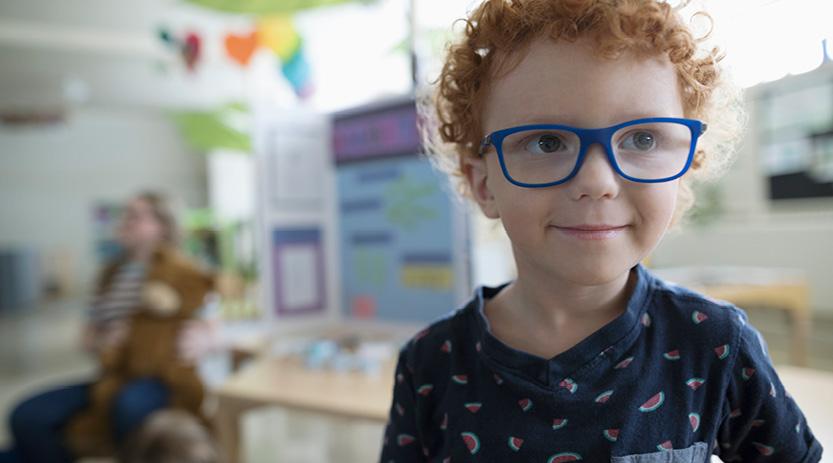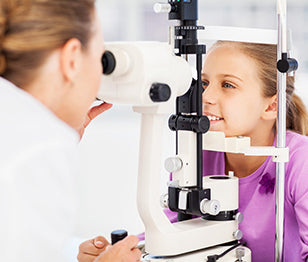What is retinoblastoma?

Retinoblastoma is a rare type of eye cancer which develops in the retina – at the very back of the eye. It usually occurs in children under five – affecting 1 in 15,000 children around the world – and occasionally occurs in adults too.
Two thirds of the time the tumour develops in one eye, although it can be found in both.
The good news is retinoblastoma is often curable if it’s found early enough – and you’ll find the symptoms to look out for here.
Spotting the symptoms
The most common symptom of retinoblastoma is a whiteness or glow of the pupil. It’s especially noticeable in low light or with a camera’s flash – as light can be reflected like a cat’s eye.
Other symptoms include crossed eyes or eyes that don’t point in the same direction, as well as squinting, redness, soreness, swelling of the eyeball or poor vision. Many of these are common with other less serious eye conditions in children – but it’s important to book in for an eye test as soon as possible if you notice any changes.
What causes retinablastoma?
Genetic mutations in the nerve cells of the retina cause cells to multiply at an abnormal rate – leading to a tumour. The cells can invade other parts of the eye and body too. A family history of the condition could be the cause, but often it’s unknown.
How is it diagnosed?
Your optometrist might first notice symptoms during a routine eye test. They’ll then refer you to an ophthalmologist (eye specialist), who needs to complete a retinoblastoma examination. This is usually performed under a general anaesthetic. An ultrasound or MRI might also be carried out to get a proper diagnosis.
How can retinoblastoma be treated?
Treatment depends on the size of the tumour, where it’s located and if it’s spread anywhere else. A medical professional might use chemotherapy, radiation therapy, cryotherapy or laser therapy on their own, or a combination of a few. In a worst case scenario, where the tumour’s too large or vision is lost, surgery might be needed to remove the eye.
The good news is in most cases children recover from retinoblastoma with minimal changes to their vision if the cancer is detected and treated soon enough.

We're here to help
Make sure you book an eye test as soon as possible if you have any concerns about your child’s eye health or vision.
You might also like to read...
View all-
Understanding astigmatism
There’s a good chance you’ve heard of astigmatism before. It’s a common eye condition that causes blurred vision, discomfort in your eyes and headaches.
Eye conditionsUnderstanding astigmatism
There’s a good chance you’ve heard of astigmatism before. It’s a common eye condition that causes blurred vision, discomfort in your eyes and headaches.
Read more -
Learning more about cataracts
You’ve probably heard of cataracts – when the normally clear lens of the eye becomes cloudy. It happens because the lens becomes hardened, and it means a gradual decrease in...
Eye conditionsLearning more about cataracts
You’ve probably heard of cataracts – when the normally clear lens of the eye becomes cloudy. It happens because the lens becomes hardened, and it means a gradual decrease in...
Read more -
The ins and outs of colour deficiency
You might know colour deficiency by its other name – colour blindness. This name isn’t technically correct, as most people living with colour deficiency can actually still see colours.
Eye conditionsThe ins and outs of colour deficiency
You might know colour deficiency by its other name – colour blindness. This name isn’t technically correct, as most people living with colour deficiency can actually still see colours.
Read more





